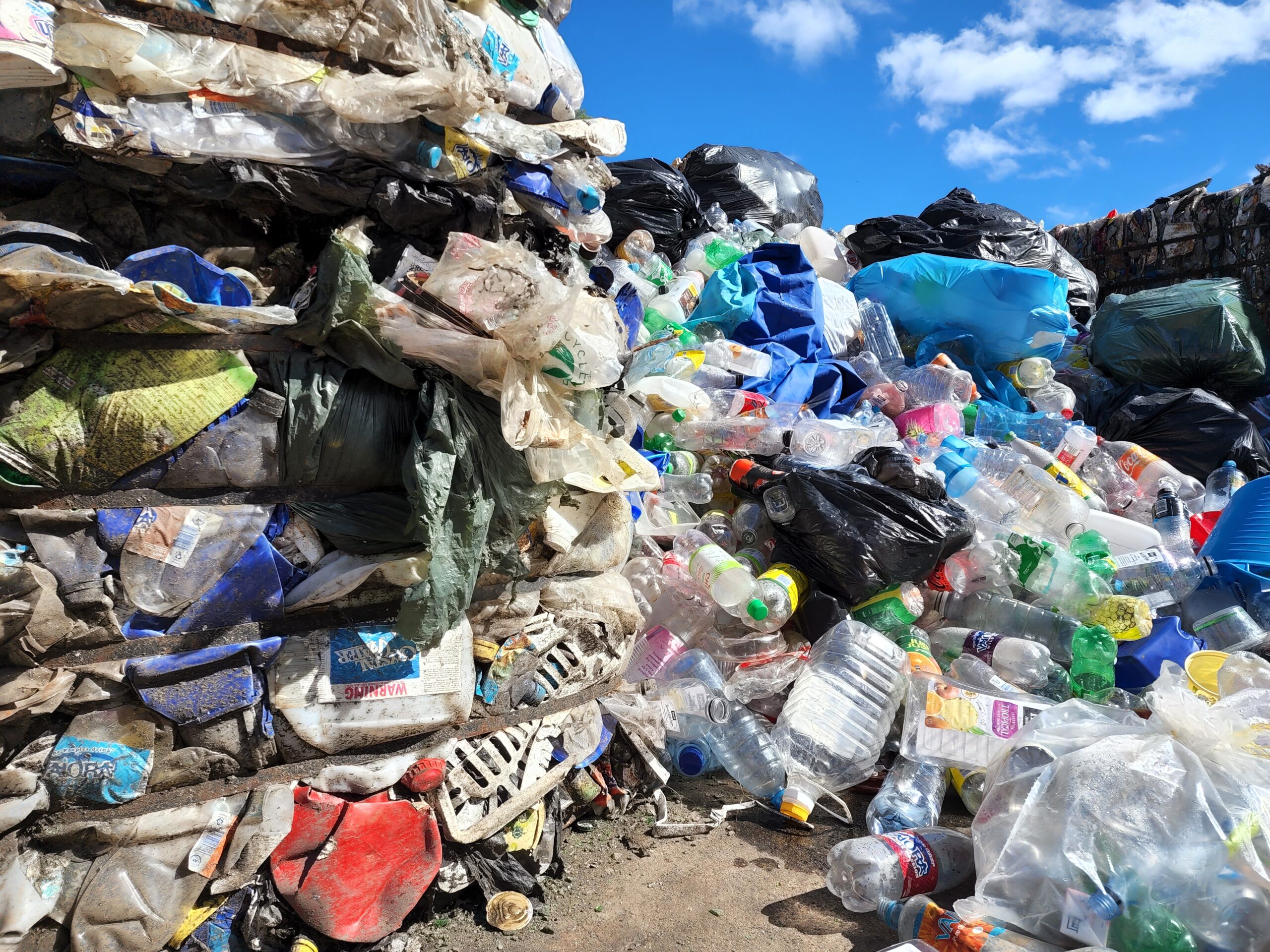Te Ipukarea Society: Tackling waste management challenges
Saturday 17 February 2024 | Written by Te Ipukarea Society | Published in Environment, National

It only takes a trip to our landfill to realise urgent action is needed to relieve our waste pressure. TIS/240211625
Summer intern Itirangi Pennycook recently caught up with the Director of Waste Management for Infrastructure Cook Islands (ICI), Claytoncy Taurarii, to get an update on our current waste situation.
The busy Waste Management team that comes under ICI are in charge of weekly roadside collections, as well as the cleaning, sorting and proper disposal of collected waste once it reaches the Arorangi landfill.
In an attempt to trial initiatives that reduce recyclable waste building up in the landfill, the Waste Management Division has leveraged technology to make better use of the vast amounts of glass bottle waste they receive.
For example, did you know that our consumption of glass bottles surged over the most recent festive season, tripling in numbers compared to the previous year? That's a whole lot of green bottles! In response, the Waste Management Division ramped up their glass recycling efforts by using their state-of-the-art glass crusher to address the mounting glass bottle waste. This specialised equipment is designed to crush glass beverage bottles efficiently, facilitating the recycling process. The final results look like fine soft colourful sand which can then be repurposed for various applications, including pavements, parking areas, and fillers for buildings, effectively reducing the reliance on traditional construction materials like sand, and offering a cost-effective and eco-friendly solution for infrastructure projects. So if you have any ideas for projects that could use this valuable resource, give Claytoncy a call.
To optimise the recycling process for glass, it’s a good reminder to keep our glass bottles clean. This includes removing all lemon slices and refraining from halving your bottle caps and then squeezing them into the bottle. This ruins the glass cruising machine, which can then become an expensive repair process.
In addition to recycling glass, our Waste Management team also exports aluminum and tin cans. These resources are more attractive for exporting as metals have some value. This is not the case for plastics however which hold no value. There is just so much of it worldwide! There are upcoming plans for the Waste Management Division to finalise a partnership with Coca-Cola to export clean plastics bottles. This is a step in the right direction for massive corporations that produce vast amounts of single use plastics to now take some responsibility and ownership in taking their waste back.
We are lucky to have the weekly roadside collection service for all Rarotonga residents. Having access to this service it’s a good reminder of how we can do our part in keeping our waste management team safe, and allow for the efficient management of our rubbish. These roadside collections accept general household waste which includes nappies, plastic bags, empty food packing, plastic food containers. This does not include disposing of hazardous waste like batteries, electronic waste, medical waste, as well as green waste like hedge cuttings or cardboard. It is recommended that green waste is composted or cardboard is reused in taro plantations.
It only takes a trip up to our landfill to fully understand the true extent of how much waste we have generated over time. With our landfill having reached its full capacity, now it is more important than ever for us to be mindful of how we can reduce the amount of waste we make before it ends up in our roadside collection.
Moving away from single-use plastics to glass, aluminum, or supporting biodegradable products and paper packaging is one way of reducing the plastic build-up at our landfill. Or simply practice reusing current plastic items you have for as long as possible before disposing of it. This all helps relieve some of the plastic pressures our landfill faces today.














































